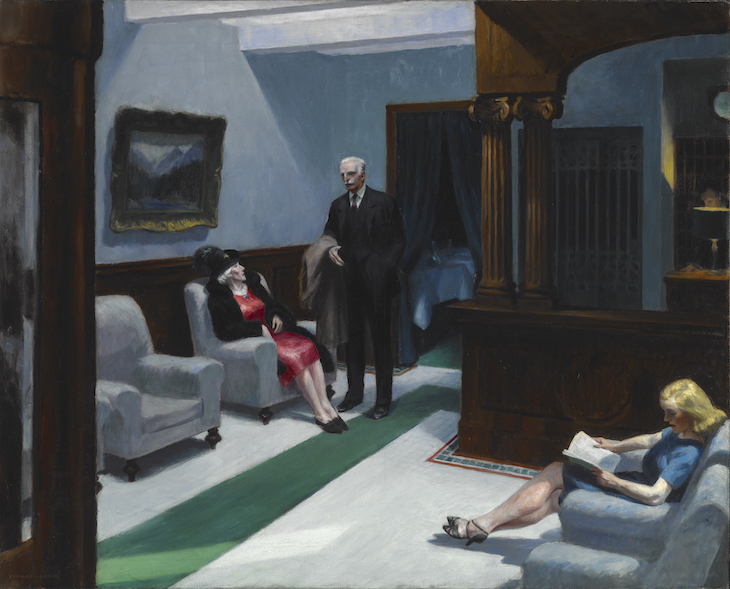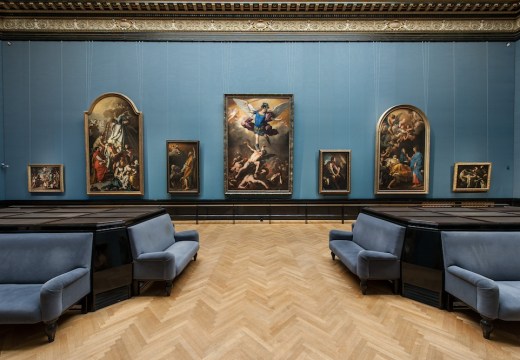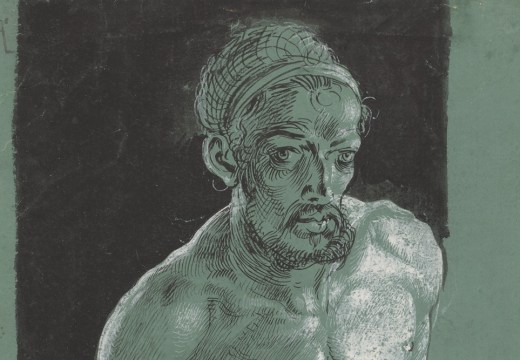With a recreation of the room in Hopper’s Western Motel (where visitors can stay overnight), as well as more than 60 works on a similar theme, this show contends that the American painter was a less introverted character than he is usually made out to be. Find out more from the VMFA’s website.
Preview the exhibition below | View Apollo’s Art Diary here

Cover of Hotel Management (January 1925), Edward Hopper
From 1924–25, when Hopper was still making ends meet with work as a commercial illustrator, he produced a series of sleek, colourful covers for the trade magazine Hotel Management. They evoke a glamorous world of golfing getaways and roaring soirées. Aspirational images for the increasingly mobile middle classes, many of whom were buying their first car, they are also a far cry from Hopper’s well-known later depictions of lone figures in lonely rooms.

Hotel Room (1931), Edward Hopper. Museo Nacional Thyssen-Bornemisza, Madrid. © 2019 Heirs of Josephine N. Hopper/Artists Rights Society (ARS), NY
More than a metre and a half wide, this famous canvas places the viewer squarely within the muted, sparsely furnished hotel room, alongside the woman who slumps on her bed, staring pensively at a train timetable. She has undressed for the night, but not bothered to unpack. With its composition of strong verticals and diagonals, the room appears at once monumentally static, and yet in flux – a reflection of the disorientating effect of life on the road.

Western Motel (1957), Edward Hopper. © 2019 Heirs of Josephine N. Hopper / Artists Rights Society (ARS), NY
Nature is emphatically and perhaps tragically tamed in this late masterpiece, with the incandescent landscape of the American West – the kind celebrated a century earlier by the Hudson River painters – experienced here at a remove, imparting little more than a soft sheen to the pastel-tinted motel room. Visitors will have a chance to ‘step inside’ this room at the exhibition, courtesy of a functional rendering in three dimensions.

Hotel Lobby (1943), Edward Hopper. © 2019 Heirs of Josephine N. Hopper / Artists Rights Society (ARS), NY
The Western landscape makes a more subtle appearance in Hopper’s Hotel Lobby; there’s one hung on the wall, ignored by the smartly dressed couple next to it. It has been postulated this pair represents the artist and his wife, Josephine (Jo) Nivison, who were frequent travellers around the US. The exhibition includes a number of Jo’s diaries documenting their travels, as well as postcards of places they visited, comparing the Hoppers’ experience with that of the millions of other itinerant Americans in the first half of the 20th century.











![Masterpiece [Re]discovery 2022. Photo: Ben Fisher Photography, courtesy of Masterpiece London](https://apollo-magazine.com/wp-content/uploads/2022/07/MPL2022_4263.jpg)
Sitting pretty – what makes a good museum bench?